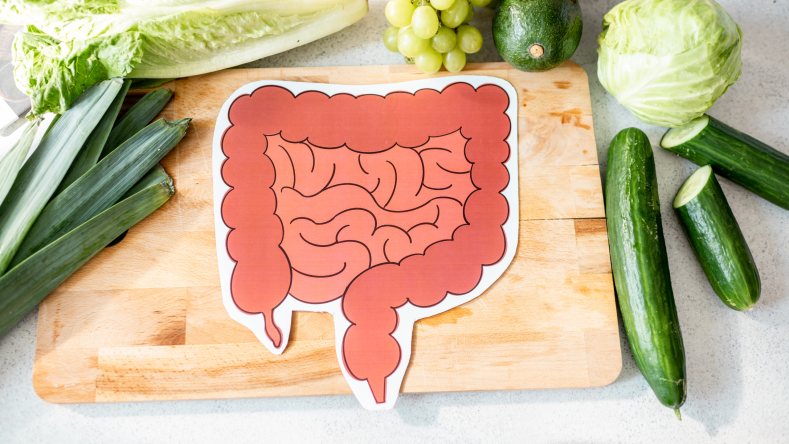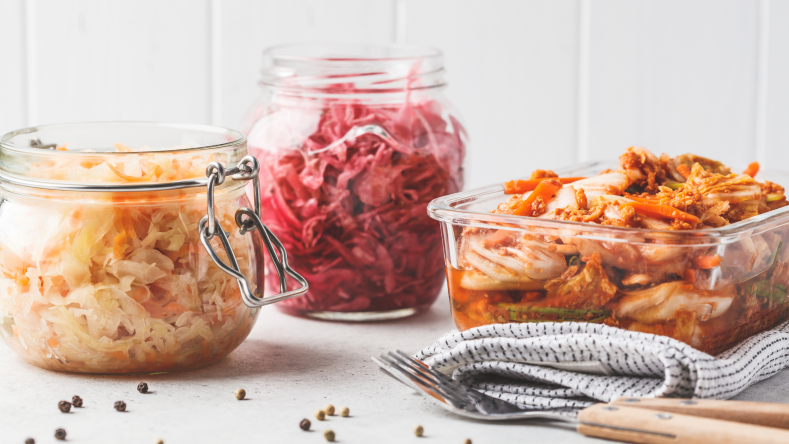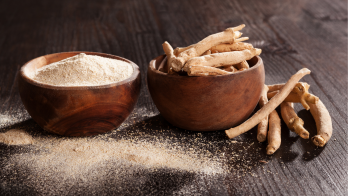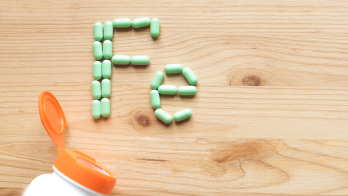Mental health and your gut: what’s the relationship?
Research shows your gut microbiome has a significant influence on your mood. Here’s what you need to know about the gut-brain-connection, including some of the best probiotics for gut health to support your mental health.

If you’ve ever felt butterflies in your stomach or felt nauseous when stressed, you’ve experienced the physical connection between your gut and brain. However, this connection does far more than give physical sensation to your emotions, as researchers suggest your gut exerts a powerful influence over your mood and mental health.
Before we dig into the science surrounding the microbiome, let’s first understand the gut brain connection, and how you can restore gut health.

Gut brain connection
Your gut and brain communicate via a bidirectional connection called the gut brain axis. The gut brain axis is a complex communication network that links the nervous system in your gut (known as the enteric nervous system, or ENS) with your brain (central nervous system).
The ENS consists of a web of over 100 million neurons lining the gastrointestinal (GI) tract from the esophagus to the rectum. It’s directly connected to the brain by the vagus nerve, which has two branches: one that sends signals from the gut to the brain and the other from the brain to the gut.
The gut and brain also communicate via endocrine, immune, and metabolic pathways [ 1 2
Your gut microbiome—the collection of microorganisms that live in your intestines—is also deeply involved in how your brain and gut communicate [ 1 3
They secrete substances, like neurotransmitters, which enter the bloodstream and affect the brain.
Your gut microbes prompt the cells lining your intestines to stimulate the vagus nerve.
They activate hormone-producing cells in the gut that send hormones throughout the body, affecting the brain.
Your gut microbes influence immune cells and inflammation, also affecting the brain.
The connection between your gut and mental health
Studies show your gut microbes affect the emotional and cognitive centers of the brain, influencing your mood, emotional regulation, and even your risk for mood disorders, including anxiety and depression [ 1
Let’s take a closer look at how the microbiome affects mental health.
Neurotransmitters and your mood.
Good gut bacteria produce hormone-like chemicals that make their way to the brain via the bloodstream [ 4
Serotonin. This neurotransmitter plays a critical role in mood regulation and mediates factors like satisfaction, happiness, and optimism. Interestingly, more than 90% of serotonin is manufactured in the gut, some directly by good gut bacteria [
5
]. Research shows that higher levels in adults are associated with positive mood, while low levels may contribute to poor memory and lower mood [6
,7
].Dopamine and GABA. Dopamine is a key regulator of decision-making, attention, memory, motivation, and reward, whereas gamma-aminobutyric acid (GABA) helps control feelings of fear and anxiety [
4
,8
,9
].Butyrate. Butyrate is a short-chain fatty acid and potent anti-inflammatory compound, and serves as the main energy source for your colon cells. It’s also been shown to reduce anxiety and depression and improve quality of life [
10
,11
]. Other evidence suggests butyrate may provide other health benefits, too, including supporting your immune system, reducing inflammation, and preventing diseases like cancer [12
].
Interestingly, it’s been found that certain species of gut bacteria (Coprococcus and Dialister) were missing in people with depression, but not from those with a reported high quality of life [ 11 11

Stress, poor diet, or antibiotics.
Studies have found that unfavorable changes in the microbiome might tip the production of neurotransmitters and other chemicals in a way that could hurt your mental health. Here’s how stress, poor diet, or antibiotics can have a direct impact on your brain.
Stress. Studies suggest that stress and depression can alter your microbiome through hormones, inflammation, and changes in the ENS [
14
].Poor diet. Dysbiosis (an imbalanced microbiome) and inflammation of the gut are linked to mental illnesses, including anxiety and depression [
13
]. Research shows high intakes of fat (especially saturated fat), protein (particularly from red and processed meat), sugar, and food additives, which are common in the Western diet, can alter the balance of good and bad bacteria in your gut [21
,22
,23
].Antibiotics. Antibiotics kill bacteria, which can wreak havoc on your microbiome. Research shows even a single week-long course of antibiotics can reduce the diversity of microbes in the gut and promote the overgrowth of certain “bad” bacteria, having a significant and lasting impact on microbiome balance and gut health [
24
].
Benefits of probiotics on mental health
Several studies have shown probiotics can have a beneficial effect on mood and alleviate symptoms of depression, stress, and anxiety [ 13 15 16
Current findings suggest the best probiotics for mood and anxiety include B bifidum, B lactis, L acidophilus, L brevis, L casei, L salivarius, and L lactis [ 1 18 17
Other studies have also found that probiotic therapy and fecal transplants might reduce certain depressive symptoms [ 19 20
While there are no specific dosage guidelines for probiotics, one study found that people who took 5 billion colony-forming units (CFUs) per day of a multi-strain probiotic for four weeks experienced improvements in sad moods and other depressive symptoms compared to those given a placebo [ 19

3 ways to improve gut health and your mood
The best and easiest way to support a healthy gut and a healthy mind is by keeping your microbiome healthy. Here are three ways to improve gut health.
1. Fill up on fiber-rich foods.
Eating a diet high in fiber feeds your good bacteria and can be an accessible and affordable way to help your microbiome flourish.
For the most benefit, it’s recommended to eat 30-40 grams of fiber/day from a variety of fiber-rich plants (like whole grains, fruits, vegetables, beans, and legumes) and avoid highly processed foods as much as possible.
2. Prioritize probiotics.
You can obtain probiotics from certain foods and supplements.
Good food sources Probiotic supplements
3. Find healthy ways to cope with stress.
Stress management techniques like meditation, yoga, listening to music, and getting regular exercise and adequate sleep can all help reduce stress levels and support a healthy, well-balanced microbiome.
Summary
Research investigating the complex gut-brain connection shows your gut exerts powerful influence over your mood and mental health. Much of this connection is attributed to the trillions of microorganisms that make up your microbiome, which affect the emotional and cognitive centers of the brain and even your risk for mood disorders like anxiety and depression. A growing body of research shows a healthy gut microbiome can be beneficial for your mood, and that probiotics may also be an effective way to support mental health and alleviate symptoms of anxiety and depression.
You can support a healthy gut by eating plenty of fiber-rich foods, regularly consuming probiotics, and incorporating stress management techniques.
Disclaimer: The text, images, videos, and other media on this page are provided for informational purposes only and are not intended to treat, diagnose, or replace personalized medical care.
Key takeaways
Your gut and brain communicate via a bidirectional connection called the gut brain axis, which is a complex communication network that links the ENS with your brain.
Studies show your gut microbes affect the emotional and cognitive centers of the brain, influencing your mood, emotional regulation, and risk for mood disorders (like anxiety and depression).
Changes to your microbiome (induced by poor diet, stress, or antibiotics) can have a detrimental effect on gut flora and mental health.
Supporting gut health with a healthy, fiber-rich diet, probiotics, and stress management may help combat mental health problems and improve mood.
References
Appleton J. (2018). The Gut-Brain Axis: Influence of Microbiota on Mood and Mental Health. Integrative medicine (Encinitas, Calif.), 17(4), 28–32.
https://www.ncbi.nlm.nih.gov/pmc/articles/PMC6469458/
Agirman, G., Yu, K. B., & Hsiao, E. Y. (2021). Signaling inflammation across the gut-brain axis. Science, 374(6571), 1087–1092.
https://doi.org/10.1126/science.abi6087
Meet the ‘psychobiome’: the gut bacteria that may alter how you think, feel, and act. (2021). AAAS Articles DO Group.
https://doi.org/10.1126/science.abc6637
Clarke, G., Stilling, R. M., Kennedy, P. J., Stanton, C., Cryan, J. F., & Dinan, T. G. (2014). Minireview: Gut microbiota: the neglected endocrine organ. Molecular endocrinology (Baltimore, Md.), 28(8), 1221–1238.
https://doi.org/10.1210/me.2014-1108
Yano, J. M., Yu, K., Donaldson, G. P., Shastri, G. G., Ann, P., Ma, L., Nagler, C. R., Ismagilov, R. F., Mazmanian, S. K., & Hsiao, E. Y. (2015). Indigenous bacteria from the gut microbiota regulate host serotonin biosynthesis. Cell, 161(2), 264–276.
https://doi.org/10.1016/j.cell.2015.02.047
Dfarhud, D., Malmir, M., & Khanahmadi, M. (2014). Happiness & Health: The Biological Factors- Systematic Review Article. Iranian journal of public health, 43(11), 1468–1477.
https://www.ncbi.nlm.nih.gov/pmc/articles/PMC4449495/
Jenkins, T., Nguyen, J., Polglaze, K., & Bertrand, P. (2016). Influence of Tryptophan and Serotonin on Mood and Cognition with a Possible Role of the Gut-Brain Axis. Nutrients, 8(1), 56.
https://doi.org/10.3390/nu8010056
González-Arancibia, C., Urrutia-Piñones, J., Illanes-González, J., Martinez-Pinto, J., Sotomayor-Zárate, R., Julio-Pieper, M., & Bravo, J. A. (2019). Do your gut microbes affect your brain dopamine?. Psychopharmacology, 236(5), 1611–1622.
https://doi.org/10.1007/s00213-019-05265-5
Mazzoli, R., & Pessione, E. (2016). The Neuro-endocrinological Role of Microbial Glutamate and GABA Signaling. Frontiers in microbiology, 7, 1934.
https://doi.org/10.3389/fmicb.2016.01934
van de Wouw, M., Boehme, M., Lyte, J. M., Wiley, N., Strain, C., O'Sullivan, O., Clarke, G., Stanton, C., Dinan, T. G., & Cryan, J. F. (2018). Short-chain fatty acids: microbial metabolites that alleviate stress-induced brain-gut axis alterations. The Journal of physiology, 596(20), 4923–4944.
https://doi.org/10.1113/JP276431
Valles-Colomer, M., Falony, G., Darzi, Y., Tigchelaar, E. F., Wang, J., Tito, R. Y., Schiweck, C., Kurilshikov, A., Joossens, M., Wijmenga, C., Claes, S., Van Oudenhove, L., Zhernakova, A., Vieira-Silva, S., & Raes, J. (2019). The neuroactive potential of the human gut microbiota in quality of life and depression. Nature microbiology, 4(4), 623–632.
https://doi.org/10.1038/s41564-018-0337-x
K. (2022, July 11). The Health Benefits and Side Effects of Butyrate. Cleveland Clinic.
https://health.clevelandclinic.org/butyrate-benefits/#:%7E:text=know%20about%20butyrate.-,What%20is%20butyrate%3F,Dr
.Clapp, M., Aurora, N., Herrera, L., Bhatia, M., Wilen, E., & Wakefield, S. (2017). Gut microbiota's effect on mental health: The gut-brain axis. Clinics and practice, 7(4), 987.
https://doi.org/10.4081/cp.2017.987
Madison, A., & Kiecolt-Glaser, J. K. (2019). Stress, depression, diet, and the gut microbiota: human-bacteria interactions at the core of psychoneuroimmunology and nutrition. Current opinion in behavioral sciences, 28, 105–110.
https://doi.org/10.1016/j.cobeha.2019.01.011
Yang, B., Wei, J., Ju, P., & Chen, J. (2019). Effects of regulating intestinal microbiota on anxiety symptoms: A systematic review. General psychiatry, 32(2), e100056.
https://doi.org/10.1136/gpsych-2019-100056
Wallace, C., & Milev, R. (2017). The effects of probiotics on depressive symptoms in humans: a systematic review. Annals of general psychiatry, 16, 14.
https://doi.org/10.1186/s12991-017-0138-2
Benton, D., Williams, C., & Brown, A. (2007). Impact of consuming a milk drink containing a probiotic on mood and cognition. European journal of clinical nutrition, 61(3), 355–361.
https://doi.org/10.1038/sj.ejcn.1602546
Messaoudi, M., Lalonde, R., Violle, N., Javelot, H., Desor, D., Nejdi, A., Bisson, J. F., Rougeot, C., Pichelin, M., Cazaubiel, M., & Cazaubiel, J. M. (2011). Assessment of psychotropic-like properties of a probiotic formulation (Lactobacillus helveticus R0052 and Bifidobacterium longum R0175) in rats and human subjects. The British journal of nutrition, 105(5), 755–764.
https://doi.org/10.1017/S0007114510004319
Steenbergen, L., Sellaro, R., van Hemert, S., Bosch, J. A., & Colzato, L. S. (2015). A randomized controlled trial to test the effect of multispecies probiotics on cognitive reactivity to sad mood. Brain, behavior, and immunity, 48, 258–264.
https://doi.org/10.1016/j.bbi.2015.04.003
Doll, J., Vázquez-Castellanos, J. F., Schaub, A. C., Schweinfurth, N., Kettelhack, C., Schneider, E., Yamanbaeva, G., Mählmann, L., Brand, S., Beglinger, C., Borgwardt, S., Raes, J., Schmidt, A., & Lang, U. E. (2022). Fecal Microbiota Transplantation (FMT) as an Adjunctive Therapy for Depression-Case Report. Frontiers in psychiatry, 13, 815422.
https://doi.org/10.3389/fpsyt.2022.815422
Satokari R. (2020). High Intake of Sugar and the Balance between Pro- and Anti-Inflammatory Gut Bacteria. Nutrients, 12(5), 1348.
https://doi.org/10.3390/nu12051348
Laudisi, F., Stolfi, C., & Monteleone, G. (2019). Impact of Food Additives on Gut Homeostasis. Nutrients, 11(10), 2334.
https://doi.org/10.3390/nu11102334
Wu, S., Bhat, Z. F., Gounder, R. S., Mohamed Ahmed, I. A., Al-Juhaimi, F. Y., Ding, Y., & Bekhit, A. (2022). Effect of Dietary Protein and Processing on Gut Microbiota-A Systematic Review. Nutrients, 14(3), 453.
https://doi.org/10.3390/nu14030453
Haak, B. W., Lankelma, J. M., Hugenholtz, F., Belzer, C., de Vos, W. M., & Wiersinga, W. J. (2019). Long-term impact of oral vancomycin, ciprofloxacin and metronidazole on the gut microbiota in healthy humans. The Journal of antimicrobial chemotherapy, 74(3), 782–786.
https://doi.org/10.1093/jac/dky471







